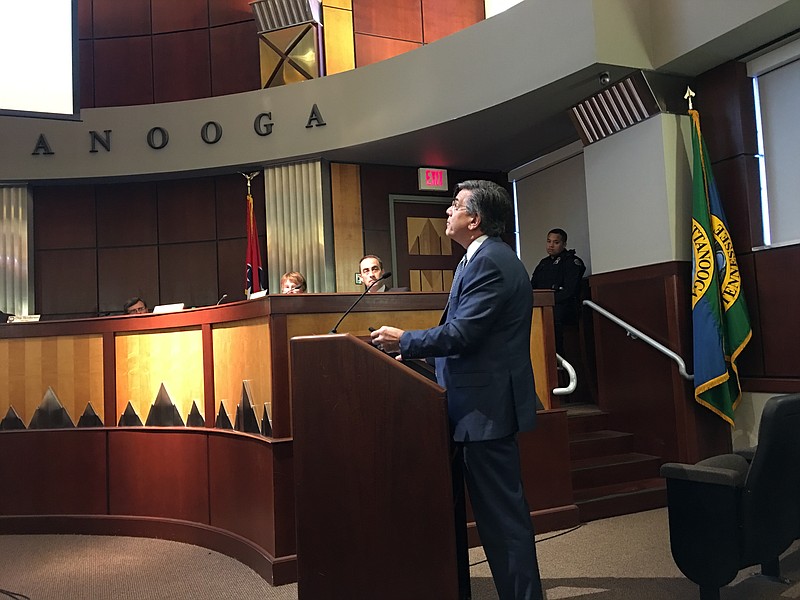The Chattanooga City Council will soon consider an 18-year tax break for the proposed redevelopment of the derelict Standard- Coosa-Thatcher textile mill, a historical landmark within the industrial blight at the western foot of Missionary Ridge.
The $57.5 million Standard Coosa Artists Lofts project calls for turning the 100-year-old industrial site into an apartment complex that will provide 170 units of affordable housing to serve as a live-work-play space for artists and other creative professionals. The mill, located at 1800 S. Watkins St., partially burned in July.
On Tuesday, developer Tim Boyle, president of St. Louis-based City Property Co., presented his plan to the council's Economic and Community Development Committee.
"We can make it beautiful again," Boyle said, praising the industrial architecture of the site's early 20th century buildings.
Councilman Chip Henderson asked for - and received - assurances from Boyle that he would not level the existing mill structures and build something new.
The tax break, known as a payment-in-lieu-of-taxes (PILOT), requires the developer to restrict tenant income in all units to 60 percent of the area's average median income (AMI). Housing and Urban Development calculates the 2016 AMI for a family of four in Hamilton County at $61,300; at 60 percent AMI, that same family could earn no more than $36,720 to be eligible to rent a unit on the property.
Based on current HUD figures, Boyle said Standard Coosa Artists Lofts would rent a one-bedroom apartment at $615 per month, while two-bedroom and three-bedroom apartments would rent for $732 and $839, respectively.
The complex will offer 60 one-bedroom, 80 two-bedroom and 30 three-bedroom units. The smallest units measure 800 square feet; the largest, 2,500 square feet.
Boyle said the redevelopment would create "positive ripple effects" by providing affordable workforce housing within three miles of downtown and giving the surrounding community "a sense of hope and expectation other good things will come."
The project cost, originally estimated at $35 million a few years ago, has grown, along with increasing construction and industrial site cleanup costs, Boyle said.
Helen Burns Sharp, representing citizen watchdog group Accountability for Taxpayer Money, told council members she believed the PILOT to be "one of the best of the best."
The City Council announced plans to vote on the PILOT on Tuesday.
Contact staff writer Paul Leach at 423-757-6481 or pleach@timesfreepress.com. Follow him on Twitter @pleach_tfp.
